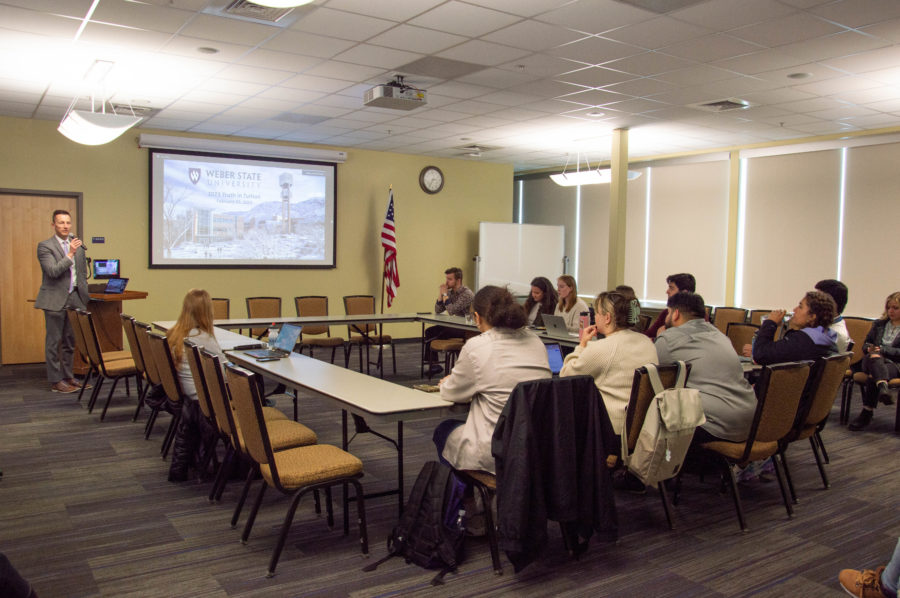The truth in tuition
The student senate meeting on Feb. 27 was dedicated to a presentation about Gov. Spencer Cox’s current proposal to freeze tuition rates by providing more state funding to cover this year’s compensation increases for employees of public, degree-granting schools in Utah.
Weber State University President Brad Mortensen was present at the meeting to explain the new funding plan to the student senate and to make possible changes to student tuition or student fees clear to the student body.
If Cox’s funding proposal is passed by the state legislature, it would halve the funds that public universities have to pay for employee compensation.
Without the proposal, the state budget annually covers 75% of the cost incurred by compensation raises for employees of qualifying Utah schools; the new plan would increase that percentage to 87.5%.
The revised funding scheme currently being deliberated on by the Utah State Legislature will reduce that percentage to 12.5%, with intentions to inspire public universities in Utah to avoid increasing tuition or student fee costs this upcoming academic year.
This year, Utah has allocated 036;35 million from taxpayers to give out to schools that qualify for funding assistance by meeting certain performance parameters, like student return on investment and student retention, according to Mortensen.
Mortensen announced that WSU requested just over 036;4 million out of that allocated amount, explaining that this money is needed in order to combat inflation and keep the school’s budget as unimpacted as possible as the cost of utilities, IT services and general upkeep increase with national inflation.
According to Mortensen, the most significant ways WSU will use the 036;4 million of performance funding is an 8.75% salary increase for qualifying WSU employees and as financial backing to pursue WSU’s interests in strengthening retention, community engagement and equity and inclusion initiatives.
Mortensen also noted that strengthening WSU’s ability to provide students with specialized and personalized education opportunities through such initiatives will be the primary use of the funding.
“An 8.75% salary increase would be the biggest the university has seen in a really, really long time, maybe ever,” Mortensen said. “This is because inflation is high and we’re trying to keep employees’ purchasing power of their salaries on pace so that they’ll stay here at Weber State.”
While Mortensen said he was confident Cox’s funding proposal will be passed by the Utah State Legislature, the proposal is still currently being deliberated on during the ongoing 2023 annual legislative session. The current legislative session’s last day will be March 3.
Mortensen also said that if Cox’s funding proposal isn’t passed, the university will need to explore other ways to collect the funding needed to keep WSU on course with its goals of keeping salary pay competitive and providing impactful, personalized education opportunities to its students. The university would also likely need to increase tuition rates to cover the needed increase to its budget.
Adjusting student fees was also briefly mentioned as a potential way that the university may attempt to make up for the funding lost if Cox’s funding proposal isn’t passed, an outcome that Mortensen and his colleagues deem unlikely, but still possible.
Mortensen announced that anyone who is interested in staying updated can attend the legislative town hall that will be held on campus on March 3. The town hall will be held at 2 p.m. in Elizabeth Hall, room 229.

















